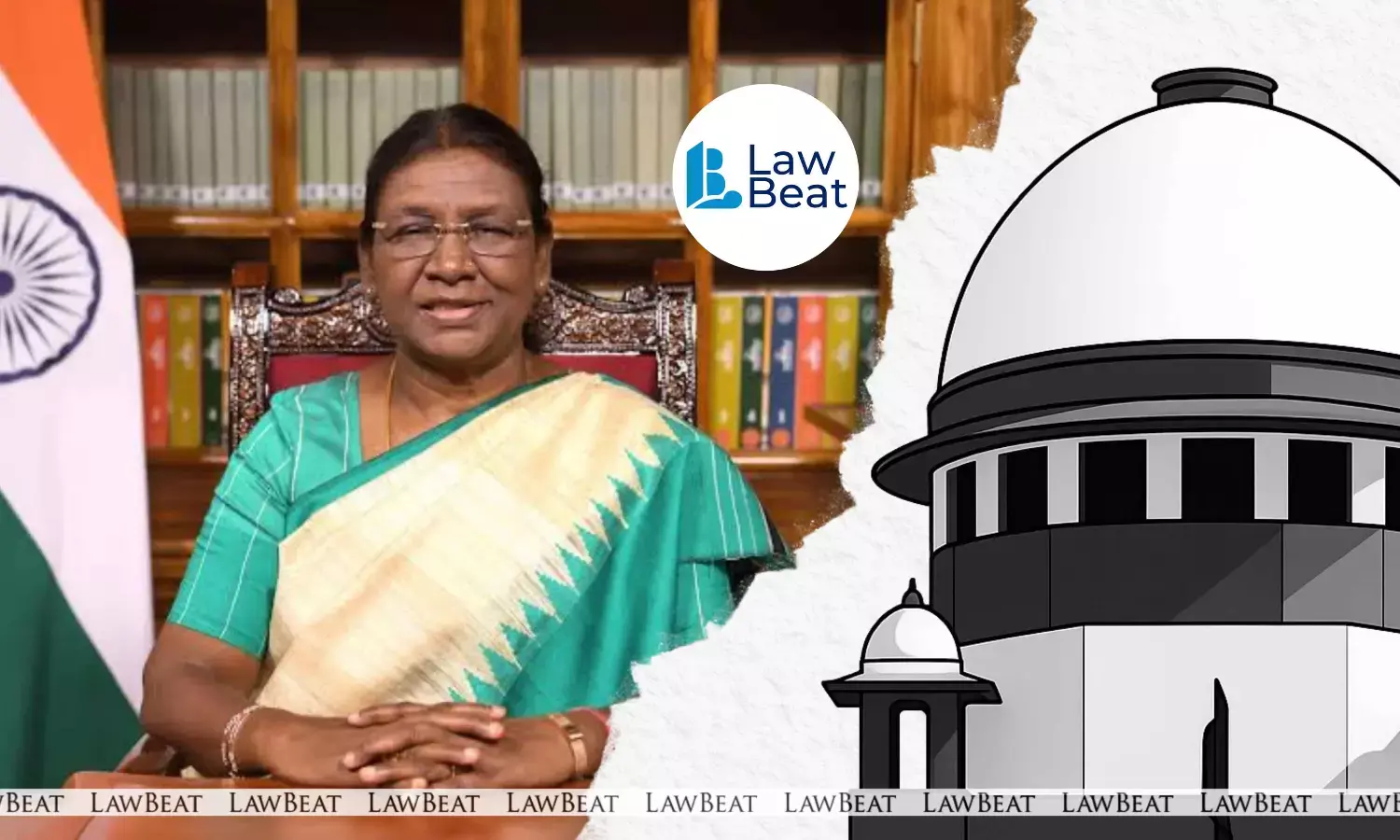President Murmu seek SC’s opinion on its order fixing timelines for Governor, President to decide on bills

President Droupadi Murmu has sought the Supreme Court’s opinion on its recent order imposing timelines for the exercise of discretion by the Governor and the President under Articles 200 and 201 of the Constitution of India to decide on bills.
In the absence of a constitutionally prescribed timeline and the manner of exercise of powers by the Governor and the President, can timelines be imposed and the manner of exercise be prescribed through judicial orders for the exercise of discretion, President Murmu has asked.
On 8th of April, the Supreme Court held that the scheme of Article 200 is characterized by the movement of the bill from one constitutional authority to another and that too with a sense of expediency and it is not open for the Governor to reserve a Bill for the consideration of the President once it is presented to him in the second round, after having been returned to the House previously as per the first proviso.
The top court added that once a bill is returned to the Governor after reconsideration by the State legislature, it must be assented to without delay. The Governor cannot reserve such a bill for the President’s consideration, as per the constitutional scheme under Article 200.
In this backdrop, President Murmu has asked if in light of the constitutional scheme governing the powers of the President, is the President required to seek advice of the Supreme Court by way of a reference under Article 143 of the Constitution of India and take the opinion of the Supreme Court when the Governor reserves a Bill for the President’s assent or otherwise?
“Are the decisions of the Governor and the President under Article 200 and Article 201 of the Constitution of India, respectively, justiciable at a stage anterior into the law coming into force? Is it permissible for the Courts to undertake judicial adjudication over the contents of a Bill, in any manner, before it becomes law?”, the President has asked.
The Supreme Court’s decision of April 8th has also been questioned in view of the proviso to Article 145(3) of the Constitution of India.
The President has asked if is it not mandatory for any bench of the Supreme Court to first decide as to whether the question involved in the proceedings before it is of such a nature which involves substantial questions of law as to the interpretation of constitution and to refer it to a bench of minimum five Judges.
“Do the powers of the Supreme Court under Article 142 of the Constitution of India limited to matters of procedural law or Article 142 of the Constitution of India extends to issuing directions /passing orders which are contrary to or inconsistent with existing substantive or procedural provisions of the Constitution or law in force?”, Murmu has further sought clarification.
Supreme Court has been asked to clarify if the Constitution bar any other jurisdiction of the Supreme Court to resolve disputes between the Union Government and the State Governments except by way of a suit under Article 131 of the Constitution of India.
Acting on a writ petition filed by the Tamil Nadu state government, a bench of Justices JB Pardiwala and R Mahadevan held in case of withholding of assent contrary to the advice of the State Council of Ministers, the Governor must return the bill together with a message within a maximum period of three months, it said.
In case of reservation of bills for the consideration of the President contrary to the advice of the State Council of Ministers, the Governor shall make such reservation within a maximum period of three months; in case of presentation of a bill after reconsideration in accordance with the first proviso, the Governor must grant assent forthwith, subject to a maximum period of one-month, the bench had said.
"When called upon to take decisions, such authorities must not give in to ephemeral political considerations but rather be guided by the spirit that underlies the Constitution. They must look within and reflect whether their actions are informed by their constitutional oath and if the course of action adopted by them furthers the ideals enshrined in the Constitution. If the authorities attempt to deliberately bypass the constitutional mandate, they are tinkering with the very ideals revered by its people upon which this country has been built," the top court’s bench had said.
